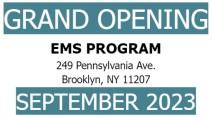
Fentanyl Overdose
Fentanyl overdose is a serious and potentially life-threatening issue. It is essential to recognize the signs of overdose and seek immediate medical attention if you suspect someone has overdosed on fentanyl. Education and awareness can help prevent fentanyl overdose and save lives. If you or someone you know is struggling with addiction to fentanyl or other opioids, seek help from Hands On Health Associates, LLC healthcare professional and addiction specialist.
What is Fentanyl:
Fentanyl is a powerful synthetic opioid drug that is commonly used for pain relief. It is up to 100 times more potent than morphine and is often used to manage severe pain in patients with cancer, chronic pain, or after surgery. However, fentanyl is also commonly used illegally as a recreational drug, often mixed with other substances, and can lead to a fatal overdose.
Causes of Fentanyl Overdose:
Fentanyl overdose can occur when an individual uses too much fentanyl or consumes fentanyl that has been mixed with other substances such as cocaine or heroin. Fentanyl overdose can also occur when an individual takes fentanyl without a prescription or uses it for non-medical purposes.
Symptoms of Fentanyl Overdose:
The symptoms of fentanyl overdose can vary depending on the amount of fentanyl consumed and how it was consumed. The symptoms can range from mild to severe and can include:
- Respiratory distress or shallow breathing
- Slow heartbeat
- Extreme drowsiness
- Confusion or disorientation
- Pinpoint pupils
- Cold, clammy skin
- Blue or gray lips or fingernails
- Muscle stiffness or rigidity
- Unresponsiveness or coma
Treatment for Fentanyl Overdose:
If you suspect someone has overdosed on fentanyl, it is crucial to seek medical help immediately. Time is of the essence, and quick action can save a life. Treatment for fentanyl overdose includes:
- Naloxone: Naloxone is a medication that can reverse the effects of opioid overdose, including fentanyl. It is available as an injection or nasal spray and can quickly restore breathing and prevent death.
- Supportive care: If an individual has overdosed on fentanyl, they will likely require supportive care in a hospital setting. This can include oxygen therapy, intravenous fluids, and other medications to manage symptoms.
- Rehabilitation: Individuals who have survived a fentanyl overdose may require rehabilitation to overcome their addiction and avoid future overdoses.


